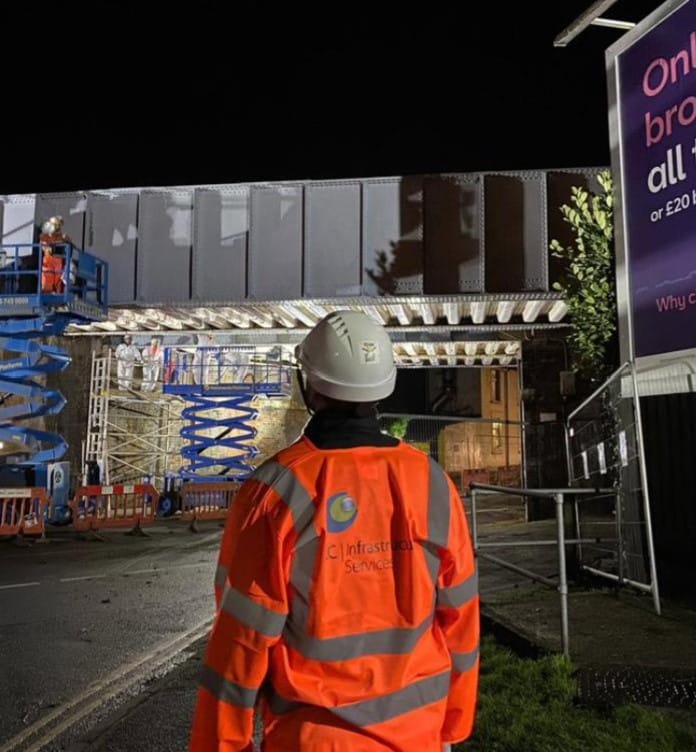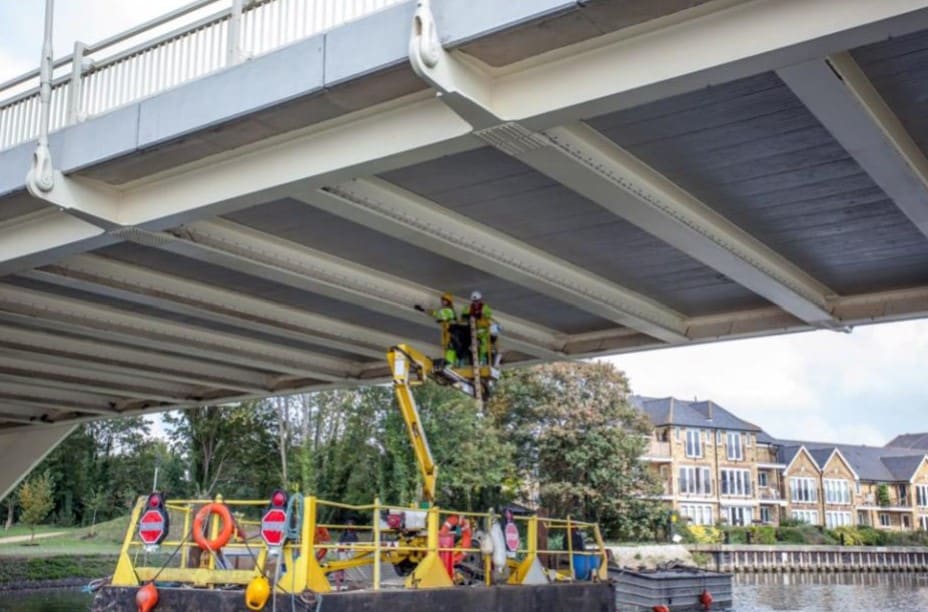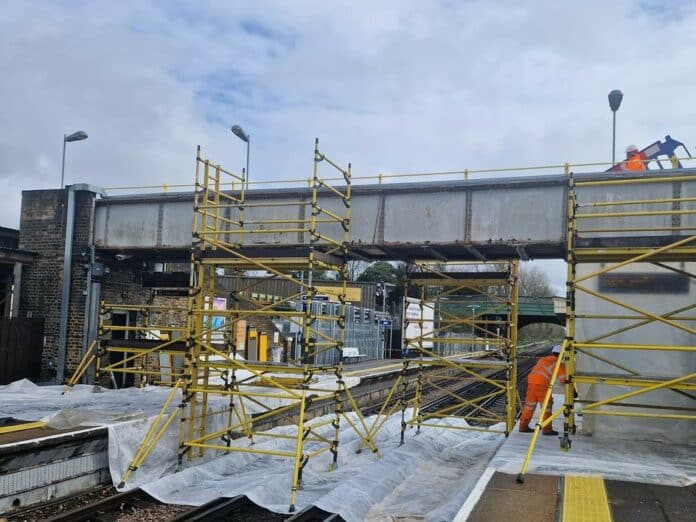By CC Infrastructure Services
Working within the rail industry comes with its obstacles such as; weather, operating within dedicated closures, night time working, dedicated training, bespoke accreditations and more. Here is an insight into how we manage some of these factors on a project-by-project basis.
The first stage of planning is the most important, before any work can be scheduled, we must check our team’s availability and recorded working hours, to ensure we can complete the project.
When creating our proposal for each project we produce an estimated duration to complete the works. However, this estimate needs to factor in the limit on working hours for employees whilst providing enough time to complete the job and rest. These restrictions need to be balanced out with the available hours the site can be worked on. For example, in August 2020 we worked alongside Octavius delivering preparation and painting for Ryde Station Footbridge and over a 52-hour possession.
To complete the project in time, shifts were carried out back-to-back with a total of 960-man hours worked in that period. It is thanks to the dedication of our amazing team who also had to work through challenging weather conditions which can further affect the time a project can take.
We must ensure that whilst those hours are completed, we remain focused on fatigue management. This means recording the hours employees work and travel. If you would like to find out more about rail fatigue, then click here to see network rails own information pdf.
A lot of the projects we are involved in require operations to be carried out during the night, due to different closures or making the most of quieter times. For example, throughout October 2021 our team completed a Metallic Structure Refurbishment at Bookham Station which was required to be completed entirely at night both for the safety of our operations team and to allow the trains to continue as normal.

Working at night brings its own challenges including the obvious lower visibility which can be managed with the use of appropriate PPE (Personal Protective Equipment) and lighting equipment. Working throughout the night is not the only external factor which we need to consider when planning a project, but the weather can play a factor in the equipment needed and time taken to complete a job.
Extreme weather conditions can influence the number of shifts it takes to complete a job due to both surface conditions and the wellbeing of our employees, such as the previously mentioned Ryde Station Footbridge job which was carried out during challenging weather conditions. Cold temperatures can also lead to ice on the surfaces, creating dangerous working environments. The cold temperatures can also stop work until higher temperatures arise, due to painting specifications which state it must not be under 5 degrees. We work with our clients to overcome any weather challenges, ensuring health and safety is at the forefront of our minds.
Another challenging factor can be the location of the project. The most extreme examples of this are working over water and when working on the underside of a tall structure. Whilst working on Ebbsfleet and Stratford International Station, specialist high access was required to safely reach all the canopies needed. In this instance it involved using a scissor lift but, on the less common occasion we work over water then temporary pontoons as well as safety teams in boats must be present.

Our HSEQ Manager Clare and one of our Project Managers will create bespoke RAMS for a project prior to starting a job to ensure it is completed within the time quoted whilst keeping everyone involved safe. You can read our case studies to find out what specialist equipment and training was used.
Click here for more details about the company.
Photo credit: CC Infrastructure Services



































 0113 2082620
0113 2082620 info@railbusinessdaily.com
info@railbusinessdaily.com 15 Mariner Court, Wakefield WF4 3FL
15 Mariner Court, Wakefield WF4 3FL

